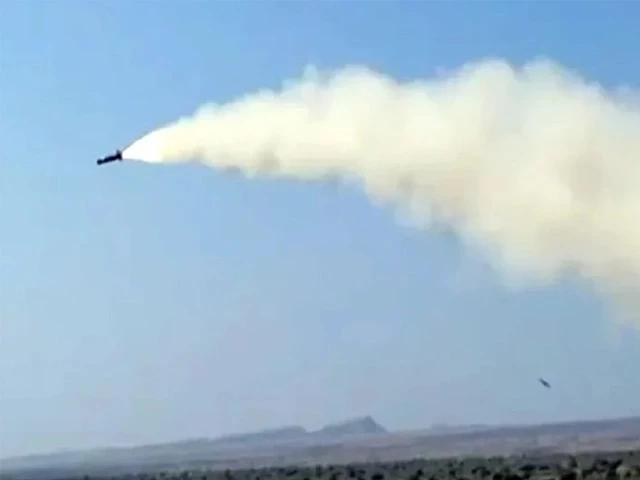Rawalpindi:
The Pakistani Army successfully conducted a training launch of its newly developed Fatah-4, a earth-launched cruise missile, in a number of 750 kilometers. Originally developed, the missile was tested on Tuesday and is equipped with advanced Avionik and groundbreaking navigation aids, according to the military’s media wing, Inter Services Public Relations (ISPR).
FATAH-4 is designed to avoid enemy missile defense systems due to its terrain-hugging capabilities, ensuring high precision when engaging targets. The functions of the missile enhance its mortality and survivability, increasing the effectiveness of Pakistan’s conventional missile systems.
“As part of the Army Rocket Force Command, FATAH-4 will further improve the range, mortality and survival of Pakistan Army’s conventional missile systems,” the ISPR declaration said.
Military management and observers
Today’s launch was attended by senior military officials, including General Staff Head, along with senior officers from Pakistan armed forces. The event also saw the presence of dedicated researchers and engineers who contributed to the development of the missile.
In response to the successful test, President Zardari expanded Prime Minister Shehbaz Sharif, president of the joint chiefs of the staff committee, and the services of Pakistan, their congratulations to the troops, scientists and engineers involved in the launch.
Pakistan-India the recent conflict
During the recent conflict with India, on May 10, Pakistan launched Operation Bunyanum Marsoos and deployed his al-Fatah missile and targeted several Indian military installations. However, after the intervention of US President Donald Trump, a full and immediate ceasefire was reached between India and Pakistan.
The latest escalation between Pakistan and India began on April 22 when an attack in Pahagam killed 26 people. India immediately accused Pakistan of the incident. However, Pakistan categorically rejected the Indian guilt.
Read more: French intelligence officer confirms the Downing of Rafale by Pakistan
In response, India took on a number of hostile actions the next day of April 23, including the suspension of the 65-year-old Indus Waters Treaty (IWT), which canceled Visa for Pakistani citizens, closes the Wagah-Attari border transition, ordered the shutdown of Pakistan High Commission in New Delhi and the reduction of diplomatic staff at each other’s amount.
Tensions further escalated in the early hours of May 7, when missile strikes hit six cities in Punjab and Azad Jammu and Kashmir (AJK), destroy a mosque and kill dozens of civilians, including women, children and the elderly.
Read: Pakistan never requested a ceasefire: DG ISPR
In a rapid military reaction, Pakistan’s armed forces shot Indian war plane, including three Rafale jet aircraft. The confrontation intensified again in the early hours of May 10 when India targeted several Pakistani Airbases with missile attacks. In contrast, Pakistan Operation launched Bunyanum Marsoos, which damaged Indian military installations, including missile storage sites, airbases and other strategic goals.
Later, US President Donald Trump announced that a ceasefire had reached after an intense diplomatic effort overnight. Minutes later, the agreement was confirmed separately by Pakistan’s Foreign Minister Ishaq Dar and the Indian Foreign Secretary.



